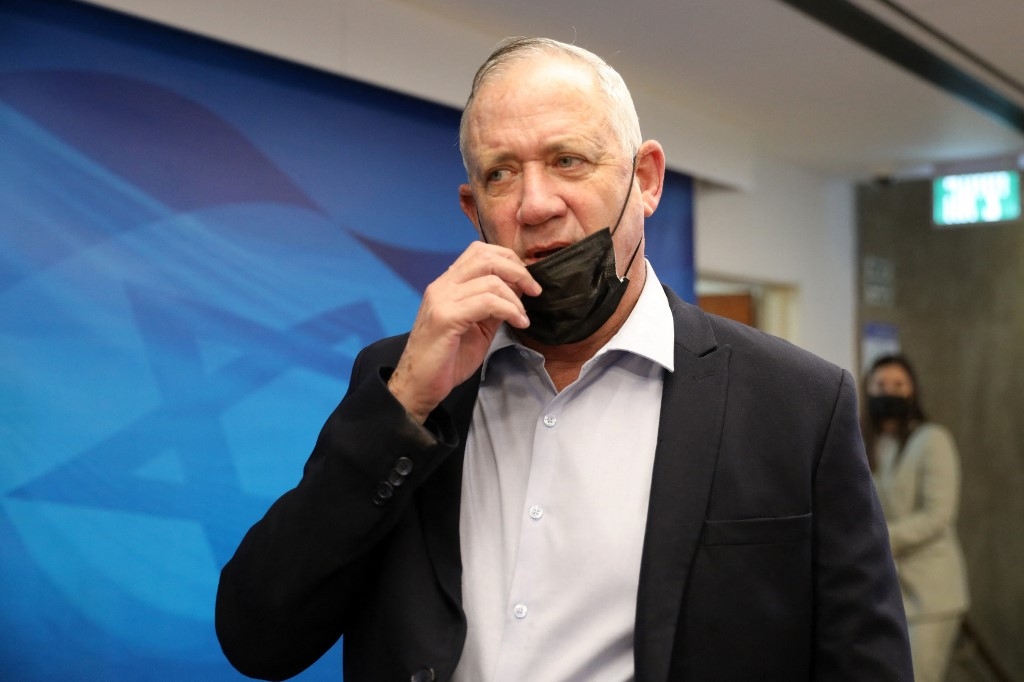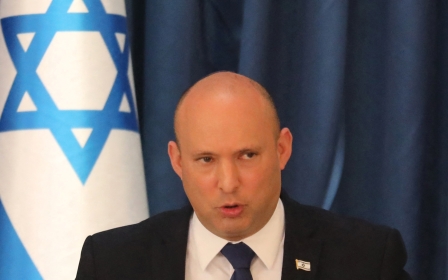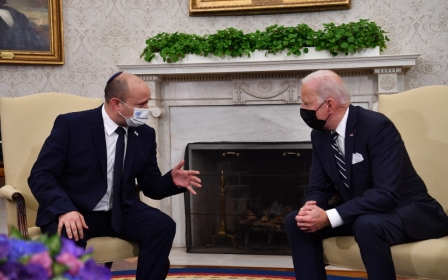Israel will lend Palestinian Authority $150m following highest level meeting in years

Israel has agreed to lend the Palestinian Authority (PA) a sum of more than $150m following a meeting between President Mahmoud Abbas and Minister of Defence Benny Gantz over the weekend.
The agreement, which came after the highest-level talks between the two sides in years, would see Israel paying the PA 500 million shekels ($155m) as a loan which the body has to repay in 2022 from the future tax revenue collected by Israel.
Israel collects almost $175m of PA tax duties on a monthly basis in return for a three percent commission, but is currently withholding and freezing $180m from the 2020 tax revenue it collected on behalf of the PA.
Israel had objected to the PA paying this sum as monthly stipends for families of Palestinian political prisoners or those killed by Israeli fire.
An Israeli spokeswoman said on Monday that the loan was meant to help "with vital PA functions”.
New MEE newsletter: Jerusalem Dispatch
Sign up to get the latest insights and analysis on Israel-Palestine, alongside Turkey Unpacked and other MEE newsletters
Hussien al-Shiekh, a PA official and the head of the General Authority of Civil Affairs, tweeted on Monday that the PA also agreed with Israel to finalise 5,000 applications made by Palestinians who have no Israeli identification papers, to reunite with their families in Israel and occupied East Jerusalem.
Israel has frozen PA tax revenue several times in the past 30 years but eventually paid a significant lump of it following US or EU mediation.
In March 2020, Israel paid the PA almost $1bn of tax duties it collected on its behalf. This came following six months of Israel withholding tax revenue, a lifeline for the PA to pay wages for almost 130,000 employees.
A 'routine issue'
On Monday, a source close to Israeli Prime Minister Naftali Bennett said that he approved the Abbas-Gantz meeting and deemed it a "routine issue".
However, Bennet, who is pro-settler expansionism and opposed to a Palestinian state, sought to play down any notion of a move towards negotiations with the Palestinians.
“There is no diplomatic process with the Palestinians, nor will there be one,” a source close to Bennet told Israeli media.
Talks between the two sides collapsed in 2014 and worsened following former US President Donald Trump's so-called "deal of the century" plan for the Middle East that saw a number of Arab countries reach normalisation agreements with Israel.
Gantz, who heads the Blue and White Party, told Abbas that Israel would take measures to strengthen the Palestinian economy.
"They also discussed shaping the security and economic situations in the West Bank and in Gaza," a statement from Gantz’s office said on Sunday.
"They agreed to continue communicating further on the issues that were raised during the meeting."
Along with PA official al-Sheikh, the meeting included the head of the Israeli military branch responsible for civil affairs in the Palestinian territories, Ghasan Alyan, and Palestinian intelligence chief Majid Faraj.
The meeting in Ramallah came just days after Bennett met with US President Joe Biden in the White House, in which Biden reiterated support for a two-state solution, while Bennett said there would be no Palestinian state as long as he is prime minister.
Abbas's PA has come under mounting global criticism over its crackdown on key rights following the death in Palestinian custody of prominent activist Nizar Banat.
The United Nations and European Union last week expressed alarm over a spate of arrests targeting leading critics of Abbas and the PA.
Middle East Eye delivers independent and unrivalled coverage and analysis of the Middle East, North Africa and beyond. To learn more about republishing this content and the associated fees, please fill out this form. More about MEE can be found here.





